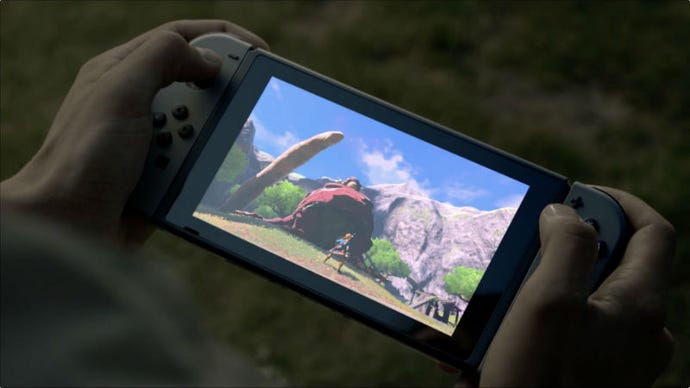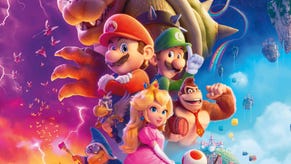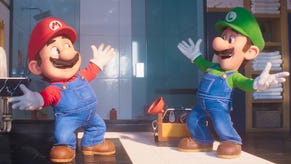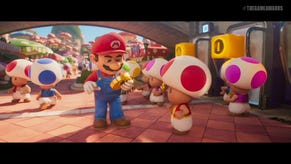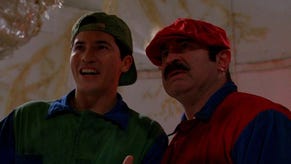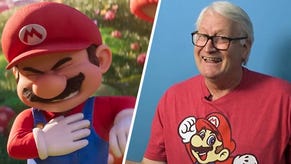For me, the Switch is Nintendo's Most Exciting Console Since the SNES
Why? It's quite a long story.
This article first appeared on USgamer, a partner publication of VG247. Some content, such as this article, has been migrated to VG247 for posterity after USgamer's closure - but it has not been edited or further vetted by the VG247 team.
Next month, it'll be 32 years since I was first employed as a video game journalist. That's a long time ago – but not quite long enough for me to have been around to cover the launch of Nintendo's Famicom back in 1983. However, I do vividly remember my first encounter with a NES in very late 1985. Or was it very early 1986?
Either way, at the time I was still living in the UK and was working for a Commodore 64 magazine called ZZAP! 64. I'd been invited to Activision's offices in London to see their latest games, and once I'd checked them out, their PR person said I really needed to take a look at a new gaming console that the company had just received from its American headquarters. Apparently, it had just been launched in the US, and he thought that I'd enjoy playing the few games that had been sent with it. The boxy grey system didn't look particularly exciting, and I was somewhat leery of its rather strange, flat controllers, but I was keen to see what the fuss was all about.
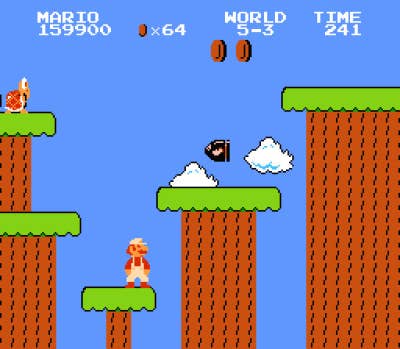
I played Excitebike first, which I thought was pretty damn good. But what really blew me away was Super Mario Bros. It felt more like a coin-op than a home console game. The bright and colorful, smooth-scrolling graphics were incredibly impressive, and even though I was having difficulty figuring out exactly how to hold the controller, I loved the gameplay. Even more so when I was told that certain pipes led to secret levels, and I subsequently found one. My mind was well and truly boggled, and I contracted my first case of Nintendo fever right there and then.
On the train home, all I could think about was Super Mario Bros. While there were plenty of absolutely incredible Commodore 64 games available at the time, there was nothing like Super Mario Bros., and I knew I just had to have it. Unfortunately, I had to wait until 1987 for the NES to finally officially arrive in the UK – which it did under the auspices of Mattel – but when it did, I bought one immediately. Despite being a shade over two years old at that point, Super Mario Bros. had lost none of its magic. I played the game obsessively, cementing a love for the series that would last for decades.
Later that same year I switched jobs, moving from ZZAP! 64 to the UK's leading multi-format magazine, Computer and Video Games. In my new position, I was able to focus much more on console gaming, and as the 80s rolled into the 90s I found myself becoming increasingly obsessed with the likes of the Game Boy, Genesis/Megadrive, and PC Engine. However, the most exciting launch of the period for me was the Super Famicom. Nintendo left it relatively late to join the fourth generation of consoles, but nevertheless, British anticipation for their new 16-bit machine was sky high when it was released in late 1990. At the time, there were a myriad of companies importing and modding Japanese consoles to work on UK PAL TVs, so the home country launch of the Super Famicom was very relevant to British gamers. Particularly as we knew we wouldn't see an official UK version for at least another 18 months.
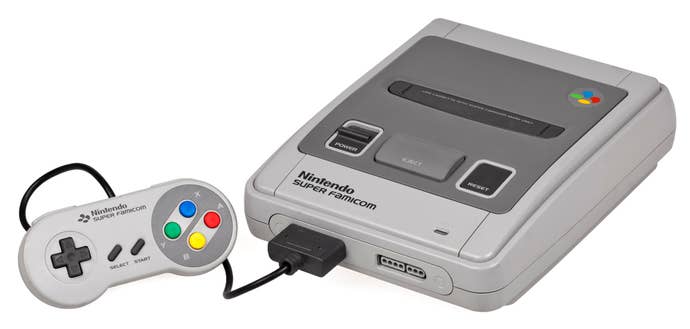
I'd personally become completely wrapped up in the pre-launch hype, and indeed contributed to a fair chunk of it. Computer and Video Games magazine comprehensively covered the Super Famicom in the months leading up to its release. We scoured imported Japanese gaming publications for details about Nintendo's upcoming system, which we passed on to our readers through news stories and features. We talked about games like Dragonfly (a forerunner to Pilotwings), waxed hyperbolically about the system's graphic and sound capabilities, and even echoed an early report that the system was going to be backwards compatible with the Famicom (functionality that was later removed for reasons of cost).
Yet despite all the hype, what drove my burning desire for the Super Famicom was… you've guessed it… the chance to play what we then called Super Mario Bros. 4. It was a red-letter day when an imported system finally arrived at the Computer and Video Games offices from Japan, and work completely ground to a halt as we set up the console and started to play the only game that we had – Super Mario World. I was beyond excited, and thankfully I wasn't disappointed. Playing the game was a truly sublime experience, and Super Mario World still remains my favorite Mario experience of all time – as it does many of the USgamer staff.
At this point, I imagine you're wondering what the hell all this ancient personal history has to do with my excitement in regards to the Switch, but bear with me. Ultimately, this is a story about my relationship with Nintendo consoles and the Super Mario series, and the fact that it reached a high during the 16-bit era.
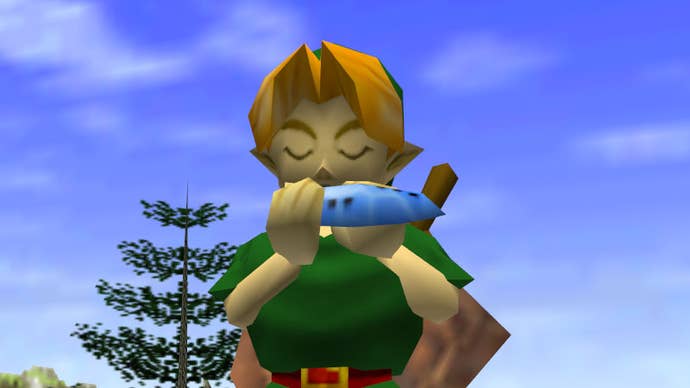
By the time the N64 was released, I'd emigrated to the US and was working for Virgin Interactive Entertainment. I managed to finagle a system at launch thanks to a friendly Babbages employee – which was very lucky, because N64s were very hard to get hold of due to high demand. Some things never change, eh? I loved Super Mario 64, and Ocarina of Time turned out to be one of the highlights of the generation. But something happened during the fifth generation of consoles. Nintendo lost some of its magic for me.
It was the PlayStation's fault – and Sega's Saturn didn't help, either. They really turned my head. Both systems had far more games that interested me, and my N64 ended up being played for very select releases. My gaming tastes simply seemed to be changing, and I was falling out of love with Nintendo games.
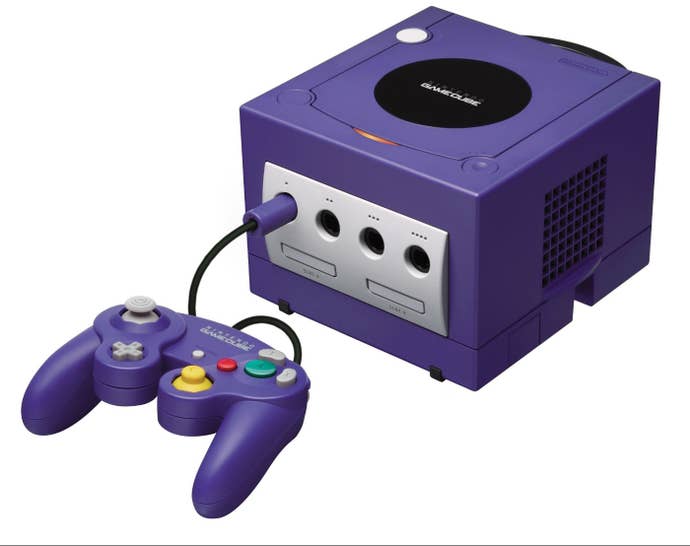
The sixth generation was even worse. I diligently bought a GameCube, and thoroughly enjoyed Super Mario Sunshine, but other than that I was seriously left wanting. Sure, the console has plenty of great titles available for it, but they just didn’t appeal to me as much as the games that were available for PlayStation 2, Dreamcast, and Xbox. I ended up selling my GameCube before the generation ended – I just didn't ever really use it.
Indeed, I used my Wii more, and that's saying something. I bought Nintendo's novelty machine soon after its launch because I was really intrigued by its motion controllers and hoped that they'd give rise to some real gaming innovation. Unfortunately, most Wii games that used the controllers in intresting ways didn't have long-lasting appeal, but I still had fun playing around with the likes of Wii Sports and Wii Fit. And, of course, I really loved Super Mario Galaxy. Despite my interest in Nintendo software pretty much hitting an all-time low, Mario still always seemed to deliver the goods. However, the reality was that my Wii spent almost all of its time sitting in standby mode.
Because of that, I didn't buy a Wii U.
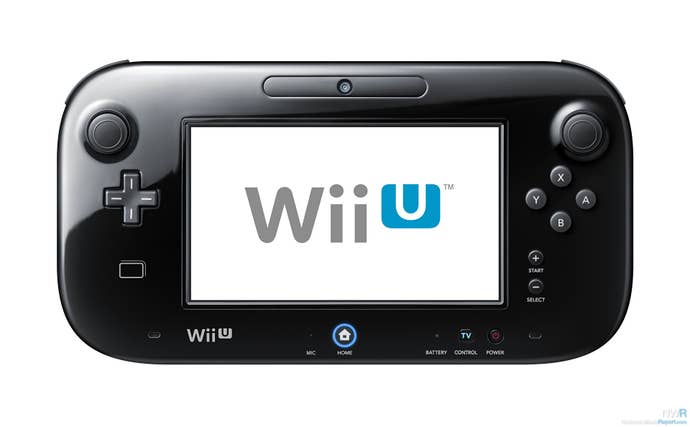
Don't get me wrong, there's nothing wrong with it – I simply decided early on that I wasn't going to spend money buying a system just to play what I predicted were going to be the three or four games that would appeal to me. So for the first time ever, I did without a Nintendo console. Sometimes I wish I had one so I could spend time with stuff like Super Mario Maker, but I'm sure it'll be remade for Switch using motion controllers, which might make it even more fun and easier to use than the Wii U version.
And that brings us nicely up to date. I confess up-front that I haven't rushed out to pre-order a Switch, but I'm nevertheless really interested in buying one. Indeed, I'm more excited about the machine than I have been for a Nintendo console since the SNES. While it can be criticized for not being perfect – poor undocked battery life, the rather disappointing launch software roster, controllers that don't charge while in joypad mode, relatively high price, pitiful onboard storage space – I'm really intrigued by its incredible functionality. It can be a touch-screen hand-held. It can be a souped-up version of the Wii. It can be linked together with other systems for local play. And it can be a regular gaming console with all the modern trappings you'd expect. The only thing that seems to be missing is the kitchen sink.
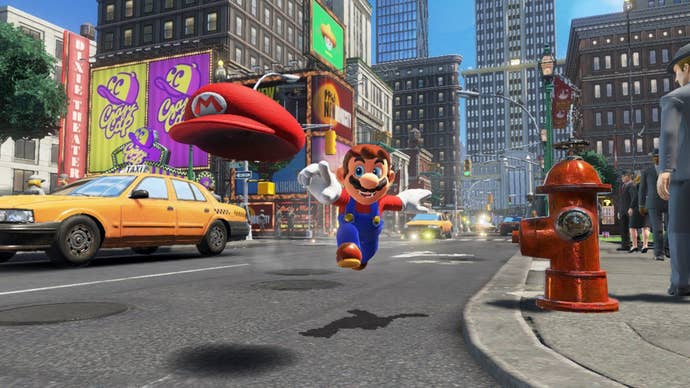
But it's not the hardware that I find most compelling – the main reason why I'm interested in the Switch is its software. I don't necessarily think that it's going to have a ton of support from big third parties, but I do think we're going to see some great games from Nintendo, select third parties, and indie developers. The machine just has so much potential for innovative new gaming experiences, and while I still have a tiny voice in the back of my head saying, "But you thought that about the Wii," I just think that this time around we really will see some interesting stuff. Times have changed in the decade since Wii first appeared, and I think there are a lot of indie developers who'll take advantage of this new machine and make games that you simply won't be able to get on other systems.
Maybe I'm just taking a leap of faith here, and I'll end up feeling the same way about the system as I did with the Wii, but there's something about the Switch that brings back a little of the Nintendo magic for me. Breath of the Wild is the first Zelda game in years that I really want to play. Super Mario Odyssey looks like it's delivering something new to the series. And Splatoon 2? I loved the Wii U release, and would be more than happy to give the Switch version some serious playtime. Add to that a nice selection of remasters and remakes of Wii U games, and I can see the Switch becoming a console that has enough unique appeal to drag me away from my PlayStation 4 and Xbox One.
And this is only the beginning.
So yeah. The Switch is helping me fall a little back in love with Nintendo again. And if things continue the way that they've started, that little love could eventually become a whole lot. At least, I really hope so. It's been a long time.
